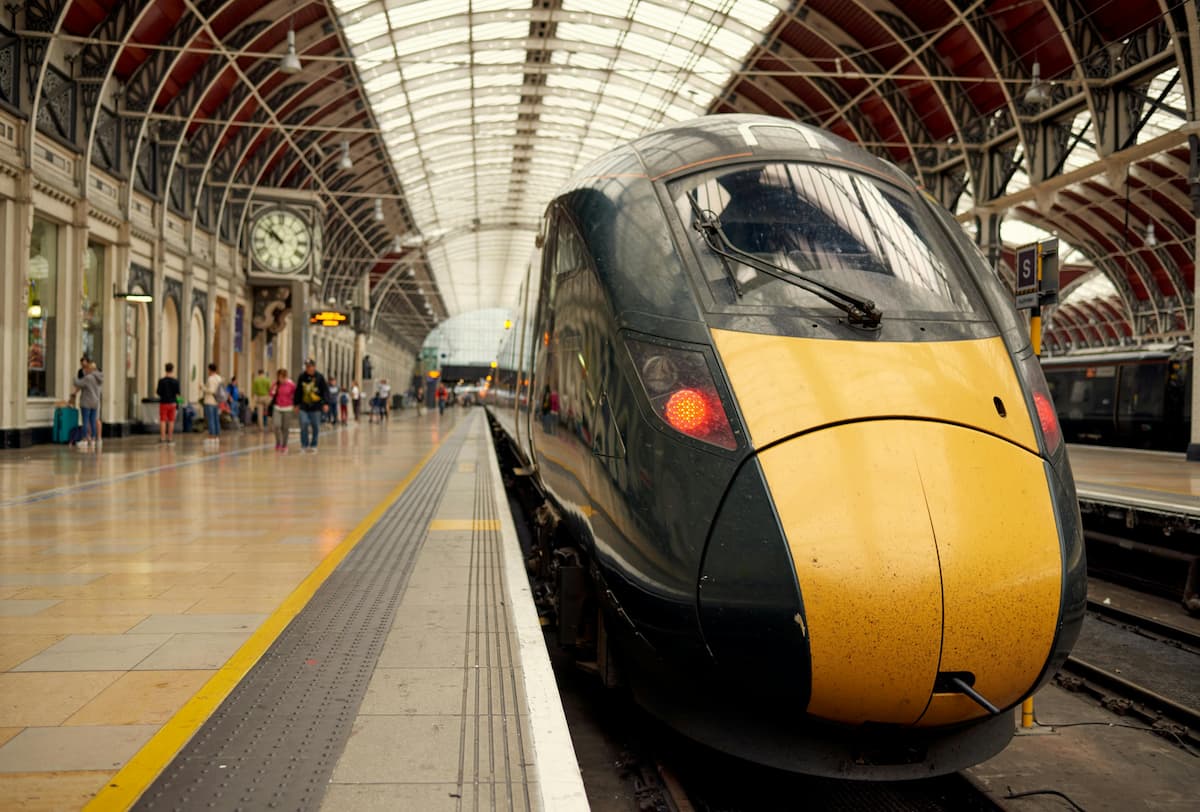In the realm of public transportation, modern train systems have become a lifeline for millions of commuters around the world. As cities grow and the demand for efficient, reliable transportation increases, so does the need for advancements in technology. Artificial Intelligence (AI) has emerged as a transformative force in this sector, revolutionizing the way trains operate, ensuring safety, improving efficiency, and enhancing the overall passenger experience. In this comprehensive article, we explore the secret role of AI in modern train systems and how it is shaping the future of transportation.
Table of Contents
Enhancing Operational Efficiency
Predictive Maintenance
One of the most significant contributions of AI to modern train systems is in the area of predictive maintenance. Traditional maintenance practices are often reactive, addressing issues only after they arise. AI changes this by enabling predictive maintenance, where potential problems are identified before they become critical. AI algorithms analyze data from various sensors installed on trains and tracks, predicting component failures and scheduling maintenance activities accordingly. This not only reduces downtime but also extends the lifespan of train components and ensures continuous, reliable service.
Optimizing Schedules and Routes
AI is also instrumental in optimizing train schedules and routes. By analyzing historical data, passenger flow patterns, and real-time conditions, AI systems can develop optimal schedules that minimize wait times and overcrowding. This dynamic scheduling ensures that trains run efficiently, meeting the needs of passengers while conserving energy and resources. Furthermore, AI can suggest alternate routes during disruptions, maintaining service continuity and improving the overall efficiency of the train network.
Enhancing Safety and Security
Real-Time Monitoring and Anomaly Detection
Safety is paramount in train operations, and AI plays a crucial role in enhancing it. AI-powered systems monitor various parameters in real-time, such as speed, track conditions, and environmental factors. By analyzing this data, AI can detect anomalies that might indicate potential safety hazards. For example, sudden changes in track conditions or unusual vibrations can trigger alerts, allowing operators to take preventive measures promptly. This real-time monitoring significantly reduces the risk of accidents and ensures a safer journey for passengers.
Surveillance and Incident Response
AI is also revolutionizing security in modern train systems. Advanced AI-driven surveillance systems can monitor platforms, trains, and stations, identifying suspicious activities and potential security threats. These systems use facial recognition, behavior analysis, and other AI technologies to detect and respond to incidents in real-time. By providing operators with timely information, AI enhances the ability to prevent and respond to security breaches, ensuring the safety of passengers and staff.
Improving Passenger Experience
Personalized Services
The use of AI in modern train systems is not limited to operational efficiency and safety; it also significantly enhances the passenger experience. AI can personalize services based on individual preferences and behavior. For instance, AI-driven applications can provide passengers with real-time updates on train schedules, delays, and alternate routes. Additionally, AI can offer personalized recommendations for nearby amenities, improving the convenience and comfort of the journey.
Smart Ticketing Systems
AI-powered smart ticketing systems are transforming the way passengers purchase and use tickets. These systems enable seamless, contactless transactions, reducing the time spent on ticket purchases and validations. AI algorithms analyze passenger data to offer flexible pricing and promotions, ensuring that passengers get the best deals while optimizing revenue for operators. Moreover, smart ticketing systems can integrate with other modes of transport, facilitating a seamless multi-modal travel experience.
Environmental Sustainability
Energy Efficiency
AI is playing a crucial role in making modern train systems more environmentally sustainable. By optimizing train schedules, routes, and speeds, AI reduces energy consumption and emissions. AI-driven energy management systems can also control lighting, heating, and cooling based on real-time passenger loads and environmental conditions, further enhancing energy efficiency. These advancements contribute to reducing the carbon footprint of train operations and support global sustainability goals.
Waste Reduction
AI also helps in waste reduction by optimizing resource utilization. For example, AI can predict passenger demand and adjust the number of carriages accordingly, minimizing the wastage of resources. Additionally, AI-driven maintenance systems ensure that components are used efficiently and replaced only when necessary, reducing material waste and supporting sustainable operations.
Challenges and Future Prospects
Data Privacy and Security
While AI offers numerous benefits, it also raises concerns about data privacy and security. Train systems collect vast amounts of data from passengers and operations, which must be protected from unauthorized access and breaches. Ensuring robust cybersecurity measures and complying with data protection regulations is essential to address these challenges.
Integration with Existing Systems
Integrating AI technologies with existing train systems can be complex and costly. It requires significant investment in infrastructure, technology, and training. However, the long-term benefits of improved efficiency, safety, and passenger experience make this investment worthwhile. Future advancements in AI are expected to make integration easier and more cost-effective, further enhancing the role of AI in train systems.
Continuous Innovation
The future of AI in modern train systems looks promising, with continuous innovation driving new applications and improvements. Emerging technologies such as 5G connectivity, quantum computing, and edge computing are expected to further enhance AI capabilities, making train systems even more intelligent and efficient. As AI continues to evolve, it will play an increasingly critical role in shaping the future of public transportation.
Conclusion AI in Modern Train Systems
AI is undeniably revolutionizing modern train systems, offering unprecedented improvements in operational efficiency, safety, passenger experience, and environmental sustainability. By harnessing the power of AI, train operators can provide reliable, efficient, and secure services that meet the demands of today’s urban environments. As we move forward, the integration of AI in train systems will continue to transform the transportation landscape, paving the way for smarter, more sustainable mobility solutions.
Please click here for Further Exploration
Please click here to read about ENSURING TOP-QUALITY PRODUCTS WITH AI-DRIVEN QUALITY CONTROL
